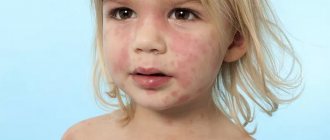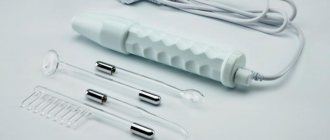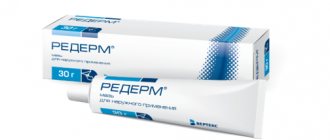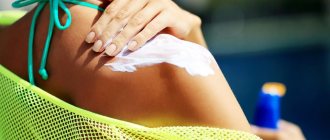In recent years, the world has seen an increase in the incidence of psoriasis, including among young people.[1] In Russia, according to research, there are about 3 million people suffering from this disease. [2] Psoriasis is a chronic inflammation of the skin that affects joints and even nails. The development of the disease is associated with the immune response and pathological activity of the cells of the upper layer of the skin. [3] A characteristic manifestation of psoriasis is a rash, most often occurring on the extensor surfaces of the arms and legs. Also, rashes can spread to the scalp and various parts of the body.
Advanced and progressive disease significantly affects the quality of life. Patients experience not only physiological, but also emotional discomfort - many patients with psoriasis become fixated on this problem, which leads to depression, rejection of close relationships and isolation.
Choosing the appropriate treatment for psoriasis is a rather difficult task, since there are many theories about the development of the disease, as well as factors that can cause exacerbation. Treatment must be comprehensive; choosing one or another therapeutic measure must take into account the form of the disease, stage, symptoms and individual characteristics of patients with psoriasis. To understand the principles of treatment, it is necessary to establish which factors cause the disease and provoke an exacerbation. The clinical picture of the disease and the severity of the course are also of great importance.
Causes
The exact cause of the disease is still not known. Currently, scientists identify several theories about the causes of psoriasis. These include:
- genetic predisposition;
- metabolic disorders;
- immunity disorders;
- focal chronic infection.
The development of the disease is based on several interrelated factors. Often, even in people with a genetic predisposition to psoriasis, it may not make itself felt for many years.
Factors influencing development:
- severe or prolonged stress
- alcohol;
- hormonal disorders;
- metabolic disorders;
- taking certain medications;
- infections;
- skin damage (burns, cuts, injuries);
- other factors.
When reacting to negative factors, foci of inflammation form in the skin, and the processes of cell division and maturation are disrupted. Cells begin to actively divide, the skin in places of inflammation thickens, forming papules (nodules) of bright pink color, which merge into so-called psoriatic plaques, covered with scales. In the absence of treatment, a significant surface of the skin is gradually affected, and inflammation spreads to the nails and joints.
In fact, the results of the effects of all causes of psoriasis can be combined into two groups: impaired division of skin cells and changes in the functioning of the immune system.
All external factors (ecology, stress, trauma) only aggravate the course of the disease, but cannot act as a single cause.
Types of disease
There are a large number of classifications of psoriasis, which are based on the severity of the condition, the nature of the rash, the location of the lesion, etc. The most common types of disease are:
- Plaque psoriasis (vulgar) makes up the majority of all types of psoriasis. It is characterized by the appearance of traditional plaques covered with white-gray scales.
- Guttate psoriasis manifests itself as numerous and fairly small rashes with scales over the entire surface of the body after a cold or sore throat.
- The pustular variant is characterized by the formation of plaques with purulent inflammation.
- Seborrheic – it is characterized by the presence of oily scales in the area of hair growth, nasolabial folds, chest and back. It differs from seborrhea in the clearer boundaries of the plaques.
- In palmoplantar psoriasis, the elements are located in the corresponding areas of the skin.
- The exudative version differs in that the scales are saturated with a yellowish liquid - exudate. Due to this, they look stuck together and change color. Often observed in obesity.
- Psoriatic erythroderma is a severe form of the disease, since almost the entire surface of the skin is affected and systemic reactions occur (fever, weakness, malaise, enlarged lymph nodes, impaired liver and kidney function).
- The arthropathic type causes damage to the joints, is observed in 3-5% of all patients with psoriasis, and often leads to disability.
According to the stages of the pathological process, scaly lichen is divided into progressive, stationary and regressive stages.
Characteristic signs of psoriasis
Most often, with psoriasis, pink-red plaques appear on the surface of the skin, covered with grayish or white scales (psoriatic plaques). It is with this symptom that another name for the disease is associated - scaly lichen.
The size of the rashes may vary. The primary elements are small papules (nodules) from pink to bright red or burgundy. Over time, their size increases significantly, and they also tend to merge.
In 90% of cases, signs of psoriasis include the formation of standard plaques, which are characterized by a triad of symptoms. This triad is identified by a doctor with a special diagnostic test - plaque scraping:
- Stearic stain - characterized by peeling when the plaque is scraped and the separation of gray-white scales, reminiscent in appearance of candle shavings.
- If you continue to scrape the surface of the plaque, then after removing all the scales, a thin shiny film will appear, called terminal.
- The symptom of blood dew can be detected by removing the terminal film. At the same time, tiny droplets of blood appear on the surface.
Rashes can be found on a variety of areas of the skin, but most often they are located:
- on the extensor surfaces of the limbs (elbows, knees);
- along the hairline (the so-called “psoriatic crown”);
- in the area of the sacrum.
Often psoriatic plaques are located symmetrically. Rashes exist on the skin for a long time, but can decrease and even disappear during periods of temporary recovery (remission) and reappear during periods of exacerbation.
Also, psoriasis symptoms can wax and wane depending on the season. For example, in the autumn-winter period in most patients the disease enters the acute phase, while in the summer its symptoms decrease. Scientists explain this phenomenon by increased exposure to ultraviolet radiation, which heals the skin. But the opposite effect is also possible, when sunlight acts as an irritant for the skin. Then the manifestations of the disease intensify in the summer, and in the winter the symptoms disappear.
What can cause exacerbation and frequency
Psoriasis is cyclical
– at the first stage, red spots appear, which over time turn into one large one. Over the next few weeks, silvery scales appear and plaque growth stops. The final stage – plaques decrease. Remission sets in.
IMPORTANT: If psoriasis is not treated, everything will repeat from the beginning, but the stages will begin to replace each other faster - exacerbations will be monthly.
Remember what exactly was the precursor to the appearance of red itchy plaques, and try to prevent a recurrence:
- cold – get treated on time, don’t let it get worse;
- alcoholism and smoking - try to get rid of bad habits;
- fasting and cleansing the body are fashionable trends, but they are not for you;
- the sun is your enemy, it drives psoriasis deep inside, and from there it comes with a vengeance, so try not to overheat;
- stress;
- endocrine diseases.
Stages and types of psoriasis
Doctors distinguish 4 stages of disease development:
1) progressive
2) stationary
3) regressing
4) remission
The development of psoriasis, as a rule, corresponds to the stages of psoriasis and occurs sequentially, subject to a properly selected treatment plan.
The initial stage of psoriasis is characterized by severe itching. The patient constantly scratches the skin, as a result of which the growth and fusion of psoriasis plaques occurs, as well as the appearance of new lesions. Thus, in the first stage of psoriasis, the lesions rapidly increase, and it is at the progressive stage that a visit to a dermatologist will help stop the area affected by ordinary psoriasis. The main goal of treatment at the progressive stage is to eliminate itching of the skin and relieve acute inflammation.
Characteristic signs of the stationary stage: new rashes do not appear, and the affected areas of the skin are covered with white scales. From this stage, under unfavorable conditions, a transition back to the progressive stage is possible, and with successful treatment, to the regressive stage. In the stationary stage, treatment is often prescribed with products with an exfoliating effect and drugs with anti-inflammatory effects that do not contain hormones.
In the regressing stage, the rashes turn pale and resolve from the center to the edges. The patient can remain in this stage for a long time, and with constant skin care with moisturizers and on-demand treatment with non-hormonal drugs, it is possible to achieve remission.
Main symptoms of psoriasis
Depending on which part of the body is affected, the symptoms of psoriasis may vary:
- Plaques form on the scalp, slightly rising above the main surface. On top they are covered with small scales, visually similar to dandruff. The hair structure remains intact. In addition to the fact that the plaques are located in the area of the scalp, often as the disease progresses they extend beyond its boundaries, affecting the skin of the forehead, neck, and area behind the ear.
- On the skin of the feet and palms, psoriasis manifests itself as a noticeable thickening, the skin becomes coarser, and its thickness increases. Often, cracks and ulcers, visible from external examination, form in the affected areas. This feature is explained by the fact that epidermal cells divide with high intensity; the skin simply does not have time to get rid of dead particles, so they accumulate and are compressed, remaining on the surface.
- On the nail plate, psoriatic lesions appear completely differently. There are options here: the surface of the nail is covered with small, shallow pits - the nails take on the so-called “thimble” appearance. Or the second option - the nail plate thickens, its color changes, and it begins to peel off in some places. At the same time, characteristic papules with red edges can be seen through the nail. Sometimes this form is confused with a fungal nail infection.
What is psoriasis
This is a serious pathology that does not pose a mortal danger to humans, but can cause a lot of trouble to a sick person. It manifests itself in the form of flaky plaques, unbearable itching and redness.
- If these psoriatic rashes are on the face and neck, and the profession of the sick person is quite public, then ignorant people may not understand that there is no threat to their health, they may get scared or point the finger. These are all rather unpleasant manifestations that can cause stress in the sick person.
- If the plaques are located on the scalp, they are visually invisible, but falling scales, the occurrence of which is inevitable, end up on clothing. They are especially noticeable on a wardrobe of dark colors - this gives the impression of a sloppy person who does not take care of himself.
- Psoriasis of the palms and soles interferes with the ability to move normally, stand or do anything with your hands - all this significantly reduces the quality of life.
People first started talking about psoriasis as an independent disease at the end of the 18th century; before that, it was often confused with other manifestations of skin pathologies. Unlike ordinary dermatoses, the disease affects a number of other systems - immune, endocrine and nervous.
Recommendations for eliminating symptoms of the disease
Effective treatment of psoriasis is only possible with an integrated approach. It is important to take maximum precautions to reduce the risk of exacerbation of the disease. So, it is recommended:
- avoid injury to the skin;
- avoid hypothermia;
- to refuse from bad habits;
- avoid stressful situations;
- promptly treat infections and concomitant diseases;
- Avoid prolonged exposure to direct sunlight.
Patients with psoriasis need to be especially careful in observing personal hygiene requirements. If you take a shower or bath, then:
- use products without dyes and fragrances;
- choose a mild shampoo;
- avoid using rough sponges, creams, gels with abrasive particles;
- Avoid hard soap, as it dries the skin too much;
- adjust the water temperature to keep it warm;
- stay in the water for no longer than 10-15 minutes;
- use a soft towel, do not rub or scratch the skin.
After a shower and bath, it is recommended to use special body moisturizers. Try to comb your hair as little as possible so as not to irritate the surface of your scalp. The same applies to blow drying. If you cannot do without it, then choose a warm or cold stream.
Choose clothes that are light, made from natural fabrics, and have a loose fit so that they do not restrict movement and do not chafe.
In summer, you should not sunbathe for too long. To protect your skin from UV rays, apply sunscreen with a high SPF factor.
Many sayings and proverbs from different peoples of the world are devoted to health, including prevention, as an important component of maintaining health, because it is easier to prevent a disease than to treat it.
Chinese proverb: “A smart person avoids illnesses rather than being cured of them.”
Latin proverb: “A healthy mind in a healthy body”
Japanese proverb: “Taking care of your health is the best medicine.”
We would like to pay attention to methods for preventing exacerbations of psoriasis, which allow patients to significantly reduce the number of exacerbations and lengthen periods of remission. Compliance with simple rules, recommendations, and awareness is the key to successful treatment, which means supporting your health and helping you. People suffering from psoriasis can live full and active lives. With regular treatment, psoriasis can remain under control. The need to use a set of preventive measures during the period of remission is beyond doubt among specialists. Among the triggers for psoriasis, in their opinion, emotional stress is primarily important. However, the presence of infectious diseases, inflammatory diseases of the gastrointestinal tract, foci of chronic infection, such as tonsillitis, sinusitis, genitourinary diseases, can also trigger the appearance of the first signs of psoriasis. Quite often, psoriasis occurs in places of mechanical damage to the skin, namely in the area of cuts, scratches, injections, scratching, abrasions, burns, or after taking certain medications. The influence of climatic factors cannot be ignored. Almost all patients with psoriasis note the beneficial effect of the sun on the course of psoriasis. American writer John Updike described the course of psoriasis in the protagonist of the novel “Centaur”: “The summer sun melted the scabs; by September my chest and legs were clean, except for barely visible grains, pale, almost imperceptible, which, under the cold, harsh breath of autumn and winter, sprouted again. By spring they were in full bloom, but the warming sun already promised deliverance. But in January there was nothing to hope for.”
A natural question arises: what is the prevention of exacerbations of psoriasis?
- Although sun exposure does improve, sunburn is not recommended.
- We strongly recommend avoiding scratches, abrasions, cuts, etc.
- it is necessary to examine for the presence of concomitant diseases, foci of chronic infections - and appropriate treatment
- washing with a hard washcloth leads to skin trauma and aggravation of the disease; In no case should you mechanically remove scales when washing; baths with sea salt and herbal infusions (chamomile, sage) are beneficial
- Alcohol abuse sharply aggravates the course of the disease, making it untreatable
- treatment and physiotherapeutic procedures should be carried out only under the supervision of a doctor
Skin care First of all, it is useful to remember the washing and care regimen for the skin of a patient with psoriasis. When taking a shower or bath, use a soft sponge or cotton cloth. Avoid using a washcloth. Do not use harsh soaps, gasoline or other solvents to cleanse your skin, as this may cause new breakouts to appear. After a shower and or bath, it is important to apply an emollient, moisturizer (cream or body lotion, topical cream) to the skin to keep the skin smooth. Dry, cracked skin reduces the effectiveness of treatment. Keep your nails short. This will help you avoid damaging your skin. Also try to protect your skin from cuts and injuries, as these can cause new psoriasis breakouts to appear.
The skin of patients suffering from psoriasis requires special care. It is advisable to use specialized products for the care of diseased skin, so-called medical cosmetics, which can be purchased at the pharmacy. These products allow you to restore the hydrolipid mantle of the skin, thereby preventing its dehydration. Emollients should be used as often as the skin requires (at least once a day).
Sometimes clothing puts pressure on the skin, which can cause new breakouts, so choose light, loose, cotton clothing.
It is advisable to choose dresses or suits made from fabrics of light colors or with a pattern, as this will help camouflage scales that get on the clothes. Air conditioning can cause dry skin and the condition of the skin may worsen. If possible, limit time spent in air-conditioned rooms. In winter, humidify the indoor air both at work and at home.
Useful tips for patients with psoriasis Try to lead a healthy lifestyle, maintain a rational sleep and wakefulness regime. Try to avoid hypothermia and colds, as this leads to a decrease in the body's defenses (immunity) and provokes the appearance of rashes. In the mechanism of development of psoriasis, an important role is played by disorders of the nervous system. This concept includes the correct organization of the appropriate regime, work, rest, daily routine, maximum stay in the fresh air at any time of the year, and playing various sports.
Try not to overexert yourself and keep stressful situations to a minimum. The importance of mental trauma as a factor in the occurrence of psoriasis has been proven. To prevent exacerbation of psoriasis, proper organization of work for patients is important. They do not want to work with high temperatures and humidity, or exposure to harmful chemicals. Proper professional guidance for patients with psoriasis is also of great importance. They should not be recommended professions that are associated with constant trauma to the skin, exposure to allergenic factors, and neuropsychic overload.
In the past, many diseases were mistakenly attributed to poor diet. There is no scientific evidence of the effect of diet on the development of psoriasis. Many diets have been developed to improve psoriasis, but none of them have stood the test of time or received scientific confirmation. We can definitely and definitely say that eating foods containing fats, vinegar and pepper can provoke an exacerbation or worsen the course of the disease. It is recommended to avoid eating fatty foods, smoked meats, spicy dishes containing pepper, vinegar, marinades, etc. It has been noted that alcohol can provoke an exacerbation of psoriasis. In his dissertation, K. Tsabareishvili noted that alcohol consumption aggravates the course of psoriasis, contributes to the generalization of uncomplicated psoriasis and its transition to psoriatic erythroderma.
The role of smoking in the etiology and pathogenesis of psoriasis Studies have shown not only a significant connection between psoriasis and smoking at the time of the study, but also smoking before the onset of the disease. In addition, a connection was established between the number of cigarettes smoked per day and the risk of psoriasis - the greatest risk was for individuals who smoke 20 cigarettes or more per day. The main pathological processes through which tobacco smoke can affect the genesis of psoriasis are likely to be disturbances in the immune system, disturbances of microcirculation in the skin, as well as a weakening of the body's antioxidant defenses, which are observed in people who smoke.
Diet of patients with psoriasis
It is known that the onset of relapse often depends on the general condition of the patient during the period of remission and is largely determined by the regimen and nature of his diet. Chinese wisdom says: “Look for your illness at the bottom of your plate.” Patients with psoriasis, both during an exacerbation of the disease and during remission, should adhere to the following recommendations on the diet and nature of their diet:
1. It is prohibited to consume spicy, salty and smoked foods, which disrupt the absorption process in the gastrointestinal tract and can lead to an exacerbation of the disease. It is also not allowed to eat citrus fruits (oranges, tangerines, lemons, grapefruits), which contain the chemical colchicine, which destroys folic acid, which is necessary to restore the integrity of the skin. Eating corn and various products made from it is prohibited. Also excluded are those foods that cause exacerbations of diseases (strawberries, strawberries, mangoes, bananas, crabs, etc.). The consumption of alcoholic beverages is unacceptable.
2. Limit the consumption of canned food products, which are known to contain various preservative substances and may be one of the causes of exacerbation of the disease. You should limit the consumption of pickled, fried and fatty foods, coffee, chocolate, sweets, and flour products. Excessive consumption of potatoes, which contain a significant amount of potassium, is undesirable. Together with sodium salts contained in salty foods, potassium in the body acts as a calcium antagonist, which has anti-inflammatory properties. It is advisable to limit the consumption of perishable and semi-finished products (pate, meat and fish salads, etc.). It is necessary to limit the consumption of pork and lamb, which contain difficult-to-digest fats (stearic, palmitic, oleic and other fatty acids). Issues related to the limitation of certain products, taking into account their tolerance, must be resolved individually.
3. It is recommended to consume dairy-vegetable foods with the addition of the required amount of complete proteins and fats. Patients should be drawn to the need to consume sufficiently large amounts of protein foods. Daily consumption of cottage cheese and other dairy products (kefir, fermented baked milk, acidophilus, yogurt, etc.) is especially beneficial. As you know, these products contain the most complete set of essential amino acids, the presence of which is necessary to ensure biochemical reactions in the body. In addition, dairy products such as cottage cheese, processed cheese, and other types of cheese are an important source of calcium, which reduces inflammatory and allergic reactivity.
4. It is recommended to eat more plant foods, significantly expanding the range and proportion of raw vegetables and fruits in the overall diet. Cabbage is especially useful, as it is known to contain a large amount of mineral salts, trace elements and vitamins. Methylmethionine, which has a pronounced antiulcer effect, was also found in cabbage juice. Cabbage should be recommended to patients with psoriasis, especially those who simultaneously suffer from gastric ulcers and gastritis with reduced secretion of gastric juice.
It is recommended to eat carrots, which contain large amounts of calcium, iron, phosphorus and iodine salts. It also contains a lot of vitamins B1, PP, B9 and carotene - provitamin A. This vitamin promotes growth and development, ensures the processes of keratogenesis in the epidermis. It has the property of supporting the functions of epidermal keratinocytes due to the normalization of plastic metabolic processes in the skin and mucous membranes. Retinol increases the absorption of proteins, fats and carbohydrates, intensifying redox processes and cholesterol synthesis. Red beets are healthy, they are rich in calcium, magnesium, phosphorus, cobalt salts, vitamins C, B1, B2 and PP. The hypotensive properties of red beets have been noted, and therefore it should be recommended to patients with psoriasis who simultaneously suffer from hypertension. A salad that contains iron and iodine salts, carotene, vitamin C, E, B1, etc. is useful. Eating salad allows dermatological patients to improve metabolism and activate intestinal activity.
Patients with psoriasis should pay attention to the need to eat greens (dill, parsley, celery, lettuce, green onions, etc.). All of them are rich in beneficial mineral salts, vitamins and microelements. Dill, in particular, has an antispasmodic and tonic effect on the intestines. It is used to improve digestion and also as a diuretic. Dill, like red beets, contains a large amount of the microelement cobalt, which is part of the vitamin B12 molecule and is necessary for the functioning of the central nervous system and hematopoietic organs. Dill should be recommended to patients with psoriasis with symptoms of asthenia of the nervous system, reduced hemoglobin and diuresis, as well as in cases of sluggish (spastic) bowel function. It is also useful for dermatological patients suffering from hypertension, angina pectoris, cholecystitis, gastric and duodenal ulcers.
Patients with psoriasis should be recommended a wide range of fruit and berry crops. In addition to apples, pears, cherries, plums, apricots, you should also use other fruit and berry varieties. Of these, the most useful are rose hips, sea buckthorn, chokeberry, black currant, raspberries, blueberries and blueberries. Nuts and melons (watermelons, melons, pumpkins, zucchini, etc.) are useful. You can include gooseberries, rowan, viburnum, cloudberries, cranberries, lingonberries, dogwood, sloe, etc. in the diet of patients.
5. In addition to vegetables, you should eat various cereals. The most useful of them are: buckwheat, oatmeal and wheat.
6. There are some foods that have very beneficial nutritional properties (mushrooms, honey, eggs, crabs, tomatoes, sorrel, fish, cod liver, etc.). However, their use should be recommended only taking into account good individual tolerance.
7. Patients with psoriasis should drink enough liquid (milk, juices and compotes). Drinking mineral waters such as Essentuki, Narzan, etc. is also beneficial.
8. The feasibility of using vitamins in a complex of means for preventing relapses of psoriasis follows, on the one hand, from the known facts about the provoking effect of metabolic disorders, on the other hand, from the beneficial effect of vitamins on the body by increasing the body’s defenses, i.e. increasing the body’s resistance, etc. Impaired keratinization in psoriasis served as the basis for the use of vitamin A or retinol. Vitamin D is also used, which, by regulating the exchange of phosphorus and calcium, promotes the compaction of cell membranes, has a positive effect on regenerative processes in the epidermis, promoting the deposition of dehydrocholesterol in the skin. Particular attention is paid to the development of individual indications for the use of a particular vitamin or their complexes, components (undevit, revit, panhexavit, dekamevit, etc.), dosage and duration of use, course treatment methods in the period between exacerbations of psoriasis.
- avoid eating fatty foods, smoked meats, spicy dishes containing pepper, vinegar, marinades
- limit consumption of canned foods
- limiting flour and sweets
- eat a variety of grains. The most useful of them are: buckwheat, oatmeal and wheat
- Avoid smoking and drinking alcohol (especially beer, champagne, wine). Alcohol can cause psoriasis to worsen
- eat more plant-based foods (a variety of fresh vegetables and fruits)
- It is advisable to use multivitamin complexes
- sufficient amount of liquid, including mineral waters
- take into account individual food tolerance
Climatotherapy
As already noted, climatic and resort factors have not only therapeutic, but also preventive significance for psoriasis. A Latin proverb says: “Whoever medicine cannot cure, nature cures.” Sun exposure and sea bathing have beneficial effects. The main climatic factor is solar ultraviolet radiation. Sunbathing begins with 5-15 minutes with a gradual increase in solar exposure; the use of sunscreen is mandatory. Depending on the condition of the skin process, the time spent in the sun and sea water is corrected. It should be remembered that improvement is observed only after a few weeks. Sunburn, which aggravates psoriasis, should be avoided. If there are wounds or scratches on the body, swimming in the sea is prohibited. For patients with high disease activity, travel to the sea is generally contraindicated until the process stabilizes, which requires preliminary preparation. Sunbathing increases the risk of skin cancer, so it is recommended to have your skin checked by a doctor annually.
Consult your doctor about the optimal sunbathing regimen and the best month for climatotherapy in different countries. In general, sunlight has a beneficial effect on psoriasis. Patients living in cold climates usually notice a significant improvement in their condition after sunbathing or spending time in the south. A small percentage of patients experience worsening after sunbathing. Avoid taking baths with Dead Sea salts yourself. Salts can cause an increase in the number of rashes, especially during an exacerbation of psoriasis.
How to treat psoriasis
Several important aspects determine the choice of approaches and methods for treating psoriasis.
The systemic nature of the disease predetermines an integrated approach to its treatment, which includes both medications (sedatives, antihistamines, vitamin complexes, sorbents), and physiotherapy, diet, and balneotherapy. Particular attention is paid to external therapy with ointments and creams, daily skin care.
A chronic course with numerous relapses throughout life forces the patient and his attending physician to look for methods of prevention that can prolong periods of remission and improve the patient’s quality of life.
In addition, a chronic disease requires long-term or repeated treatment, which means that drugs must be gentle, have a small range of side effects and not cause the so-called withdrawal effect.
Basic approaches to the treatment of psoriasis
Treatment of a disease such as psoriasis should begin with identifying the causes of exacerbation of the disease. If you systematically eliminate the factors that contribute to the exacerbation of this pathology, you will be able to keep the course of the disease under control. Treatment methods for psoriasis are selected taking into account several aspects:
- complexity of the disease;
- presence of concomitant pathology;
- localization and size of psoriatic plaques;
- the patient's ability to comply with medical recommendations.
In this regard, when choosing methods of treating psoriasis, doctors focus on solving the following problems:
- maximum possible cleansing of the skin from lesions;
- obtaining results in the shortest possible time;
- relief of the main symptoms of the disease;
- reducing the likelihood of relapse or worsening the course of the disease.
When a patient has mild and mild psoriasis, treatment usually involves the use of external agents that help eliminate the external signs of the disease. The specialist’s task is to select a drug that will help obtain the effect, suit the patient and can be used for a long time. Complex, severe forms of psoriasis are treated systemically, selecting a whole range of drugs. Here it is important to start taking measures as early as possible, then it will be possible to stop the disease before it has a serious impact on the patient’s quality of life.
What caused the relapse of psoriasis?
As a rule, the first symptoms of the disease appear at a young age - 15-25 years, and then throughout life, psoriasis manifests itself as a series of exacerbations that arise for a number of reasons:
- due to stress and bad habits - smoking, active alcohol consumption;
- due to colds, harmful environmental influences, industrial hazards;
- if the diet is not followed - unhealthy diet with an abundance of carbohydrates, fast food, highly allergenic foods.
If you refuse treatment, “squamosal lichen” progresses and spreads further, aggravating its symptoms and causing the patient anxiety about the appearance and attitude of others. Therefore, during exacerbations of psoriasis, there is no need to guess what to do with it; the answer is always the same - immediately seek medical help.
Photo 1. Relapse of psoriasis.
Photo 2. Relapse of psoriasis.
General treatment regimen
Typically, patients with this pathology are prescribed the following treatments for psoriasis:
- Glucocorticosteroids - they give a good effect, help stop exacerbations, but have many contraindications. If used incorrectly, a decrease in the effectiveness of the drug, atrophy of the skin, and so-called “withdrawal dermatitis” may occur.
- Vitamin D3 analogues - such drugs are used to control psoriasis in the subsiding phase of exacerbation, however, they cannot be used for extensive lesions of the skin, they are contraindicated in children under 18 years of age and elderly people over 65 years of age, and they are not recommended for use in patients with calcium metabolism disorders .
- Products with salicylic acid provide exfoliating and anti-inflammatory effects; they are recommended for use in the stationary stage of the disease and for severe peeling. Particularly impressive treatment results can be obtained when combining salicylic acid and corticosteroids.
- Birch tar - despite the abundance of contraindications and side effects, drugs containing this substance are still prescribed to patients with psoriasis. Therefore, they must be used with caution, as coal tar can cause skin irritation.
- Products for the treatment of psoriasis containing activated zinc pyrithione. They are included in modern clinical recommendations for the treatment of psoriasis and are prescribed to accelerate the regression of rashes. Activated zinc pyrithione Skin-cap helps reduce inflammation and excess peeling and can be used on any area of the skin without restrictions.
As a rule, experts recommend course use of several drugs at once. This approach helps to achieve a pronounced effect and keep the disease under control. One of the common treatment regimens for limited forms of psoriasis is the prescription of an ointment or cream based on a glucocorticosteroid to relieve the severity of the process, and the second step is to prescribe the drug Skin-cap for further elimination of lesions and self-administration “as needed.”
Tips and recommendations from a psoriasis treatment specialist
At the Psormak Healthy Skin Institute, which treats dermatological diseases in adults and children, they will do everything possible to make your life more comfortable and relapses to occur much less frequently. Don’t despair, talk to specialists - you can call, contact the online support service, through social networks or come in person. They will always listen to you and tell you what to do next and how to slow down pathological processes.
More than three dozen medicinal herbs are included in the original ointments developed by the chief physician of the clinic, academician of the Russian Academy of Medical Sciences Vladimir Fedorovich Mak - they relieve irritation, itching and other unpleasant moments. Much attention is paid to the overall strengthening of the body - metabolic processes are normalized and its own resources are activated.
One of the most important aspects in the success of treating psoriasis and symptoms is the psychological component. At the PsorMak clinic, patients are offered professional psychotherapeutic treatment that will help them cope with the disease. During psychotherapy, mental balance is stabilized, and an adjustment to a positive result occurs.
External treatment
Particular attention in the treatment of psoriasis is paid to the choice of external medications, since among patients there are predominantly people with mild and moderately severe disease, which are characterized mainly by skin manifestations.
These products are designed to cope with skin symptoms:
- reduce and eliminate itching;
- relieve inflammation;
- reduce the volume of lesions;
- promote regression of plaques;
- reduce skin peeling;
- moisturize dry areas.
How to care for your skin
- You will have to forget about taking a bath, give preference to the shower. But if you still want to pamper yourself, do it rarely and monitor the temperature of the water - it should not be hot.
- Use a neutral, fragrance-free detergent.
- After a shower, you need to moisturize your skin with an emollient.
- Keep your nails short - this way you will protect yourself from injury if you want to scratch.
- Choose light and spacious clothes made from natural materials in light colors.
Activated pyrithione zinc in the treatment of psoriasis
Zinc pyrithione is a complex compound of zinc with sulfur and oxygen. Used in the treatment of various skin diseases, including psoriasis.
Preparations based on activated zinc pyrithione have recently become especially popular. The relevance of its use is due to the fact that it helps fight exacerbation of psoriasis, being in some cases an alternative to external hormone-containing drugs for the treatment of skin diseases. The activated zinc pyrithione molecule is 50 times more stable compared to standard zinc pyrithione4.
Benefits of using activated zinc pyriothione in the treatment of psoriasis:
- Pathogenetically based treatment of skin psoriasis, as it has pronounced anti-inflammatory, antibacterial and antifungal properties
- Long-term control of psoriasis, does not cause skin atrophy even with long-term use (up to 6 weeks)
- Without restrictions on the localization of lesions, it can be used for the treatment of psoriasis on the face, scalp and anogenital area
How to achieve remission with psoriasis
To achieve stable remission in psoriasis, the doctor prescribes maintenance therapy. This may include taking medications and using a special ointment for psoriasis. Additionally, nutrition is adjusted, vitamin-mineral complexes are prescribed, and lifestyle recommendations are given.
The most important tips:
- Constantly see a doctor and come for preventive appointments.
- Continue the course of therapy for some time after the symptoms disappear, but only in consultation with your doctor.
- Strictly follow the diet individually prepared by your doctor.
- Eliminate the influence of provoking factors.
- Maintain a proper daily routine with sufficient sleep, rest and exercise.
- Get treatment to eliminate chronic foci of infection. Sinusitis, rhinitis, sinusitis, tonsillitis, caries and other diseases of internal organs can worsen the condition.
Eliminate risk factors
First of all, to achieve remission it is necessary to exclude everything that can provoke an exacerbation. Many patients note that the relapse occurred for no apparent reason. But in reality they simply went unnoticed. There are a number of factors that can trigger the progression of psoriasis:
- prolonged depression;
- severe emotional shock;
- temperature changes or sudden climate change;
- hormonal changes (adolescence in children and menopause in women);
- smoking and alcohol abuse;
- infectious diseases.
Specific recommendations for eliminating negative factors depend on the location of the rash. For example, when treating psoriasis on the hands, it is imperative to avoid exposure to chemicals on the skin. It is equally important to avoid damage (abrasions, scratches, cuts), since new plaques may appear in their place. With psoriasis of the scalp, the condition can be worsened by incorrectly selected shampoo or careless combing, as well as coloring.
Follow a diet
An important condition for achieving and maintaining remission is following a diet. It excludes foods that can have an adverse effect on the body. These include:
- citrus,
- nuts,
- spices,
- pork,
- alcohol,
- fatty fish,
- milk,
- sweets.
The diet for psoriasis should be balanced and varied. It is beneficial to eat raw vegetables and fruits. Meat should be lean, and fish should be lean (salmon, sea bass). Low-fat cottage cheese, yogurt and kefir are well tolerated among dairy products.
Take prescribed medications
The doctor prescribes a specific course of medications. From time to time, experts recommend cleansing the body using sorbents: Activated carbon, Enterosgel, Sorbex, Smecta. In addition to them, the following can be used:
- antihistamines to relieve allergic attacks;
- folic acid, vitamin and multivitamin complexes;
- drugs to restore intestinal microflora.
Maintain a good attitude
One of the most serious imprints on the course of psoriasis is the psychological state of a person. If you focus too much on symptoms, you run the risk of psychological distress and depression. And any stress can negatively affect the course of the disease and cause a relapse.
In such a situation, the help of a psychotherapist may be required.
Yoga classes will help improve your psycho-emotional state. They are especially recommended for those who suffer from psoriasis. It is also useful to take walks, exercise and sunbathe (especially if you are prone to winter exacerbations of psoriasis). April 28, 2020
Author of the article: dermatologist Mak Vladimir Fedorovich
Treatment of psoriasis with Skin-cap preparations
Particularly many difficulties arise when treating psoriasis on the scalp. This is because many drugs are difficult to use in this area and may remain on the hair and not reach the surface of the skin. A way out of the situation may be the use of drugs from the Skin-cap line based on activated zinc pyrithione.
Soft shampoo Skin-cap is designed specifically for patients with psoriasis. It is applied to damp hair with light massage movements, rinsed off, then shampoo is applied again and left for five minutes for the active ingredients to take effect, and then rinsed off with warm water. Skin-cap shampoo has a light, unobtrusive aroma; the substances it contains fight inflammation, preventing skin irritation. And methanol in the composition cools the scalp and helps reduce itching. For medicinal purposes, Skin-cap shampoo is used 2-3 times a week, and for preventive purposes - 1-2 times a week.
In case of severe damage to the scalp, Skin-cap aerosol can be used in addition to shampoo. It is convenient to apply it to the scalp using a special attachment.
If the disease has spread to smooth skin, psoriatic plaques have appeared behind the ears, on the neck or on other parts of the body, then Skin-cap cream or aerosol can be applied to the affected areas. This should be done twice a day for four to six weeks.
Patients with severe psoriasis are usually prescribed glucocorticosteroids. Skin-cap preparations are recommended as the second stage of treatment. When the severity of the process can be reduced, Skin-cap preparations can be used to further control psoriasis.
What are the benefits of “Losterin” products?
“Scaly lichen” is a disease. “Losterin” products can be used daily for a long time, without causing addiction or withdrawal symptoms when stopping the drugs.
Creams, gels and shampoos of the brand are developed taking into account the specifics of the disease, therefore they:
- are as comfortable to use as possible, easy to apply and wash off, and do not leave marks on clothing;
- hypoallergenic, do not contain substances that irritate or cause allergic reactions to the skin (dyes, perfumes);
- do not contain hormones and do not affect hormonal levels;
- fight the main symptoms of psoriasis, relieving redness, peeling, itching;
- are gentle on the skin, hair and nail plates, have care effects (moisturizing, nourishing, easy combing of hair).
Risk factors that provoke the development of the disease
In the medical environment, there are usually several characteristic factors that can trigger the process. Moreover, the risk of developing the disease increases if there is a combination of several provoking factors. These include:
- Genetic predisposition. Scientists put forward the theory that the carriers of the disease are certain types of genes that affect the functioning of the immune system and immune cells of T-lymphocytes. For this reason, parents who suffer from psoriasis are likely to have a child who will also be susceptible to this disease.
- Dry, thin skin. Numerous studies have established a connection between skin characteristics and the risk of developing psoriasis. It turned out that people with thin and dry skin are more likely to suffer from this disease. The reason, as researchers believe, lies in the insufficient production of sebum, which acts as a natural moisturizer for the surface of the body, as well as in the structural features of epidermal cells.
- Impact of the external environment. A significant role in the increase in the number of people suffering from this disease can be played by the use of various cosmetic products and household chemicals, which often contain alcohols, solvents, surfactants and other aggressive components. These substances disrupt the natural functions of the skin, can cause irritation and lead to exacerbation of psoriasis.
- Excessive body hygiene. Pathological obsession with cleanliness also plays a cruel joke on people. The more active, intense and frequent you cleanse your skin, the more damage you can cause to it. Due to frequent use of soap when taking a bath or shower, the protective lipid layer of the skin is destroyed, this leads to the formation of microdamages on the surface, which can subsequently provoke an exacerbation or worsening of psoriasis.
- Unhealthy Lifestyle. Alcohol, smoking, constant stress, poor-quality and unbalanced nutrition, lack of normal rest and sleep - all this inevitably affects human health. It has been noted that certain foods, such as tomatoes and eggplants, as well as alcohol and smoking can worsen psoriasis.
- Immunodeficiencies. Decreased immunity, especially in HIV-positive patients, provokes skin problems and leads to exacerbation of psoriasis symptoms.
- Drug therapy. Taking certain medications can trigger the development of the disease. Beta-blockers, antidepressants, as well as drugs against malaria and seizures should be used with particular caution.
- Concomitant infections. In medical practice, many cases have been described in which signs of psoriasis develop in patients after skin damage by a fungus or as a result of a streptococcal infection.
- Changes in usual living conditions. Climate change, changes in time zones, and seasons have a negative impact on the general well-being of people. During periods of change in living conditions and environment, the body weakens, which opens the way for the development of various diseases.
- Impact of stress. Emotional and nervous tension, physical activity, disruption of work and rest schedules are some of the factors that provoke the appearance of the first symptoms of psoriasis.
- Injury to the skin. Prolonged scratching, friction, and pressure on the skin can cause microdamages and injuries. In certain situations, they can transform into characteristic psoriatic plaques.
At-risk groups
If someone, even a distant relative, gets sick, then there is a possibility that each of you is a carrier, but not a single doctor can tell you what exactly will be the trigger that will trigger the manifestation of the disease. The disease psoriasis will make itself felt - if not even in this generation, then in the next.
For example, take two identical twins - genetically they are both carriers. But one of them lives without manifestations, but the second has them in the most severe form.
There are no gender advantages - both women and men get sick. It usually appears by the age of 15-20, but if the danger has passed, do not rush to rejoice - symptoms can appear at a more mature age. The only thing that can be reassuring is that the severity will no longer be so acute.
IMPORTANT:
People with thin, fair skin prone to dryness need to be extremely attentive to their health - they are the ones at risk.











